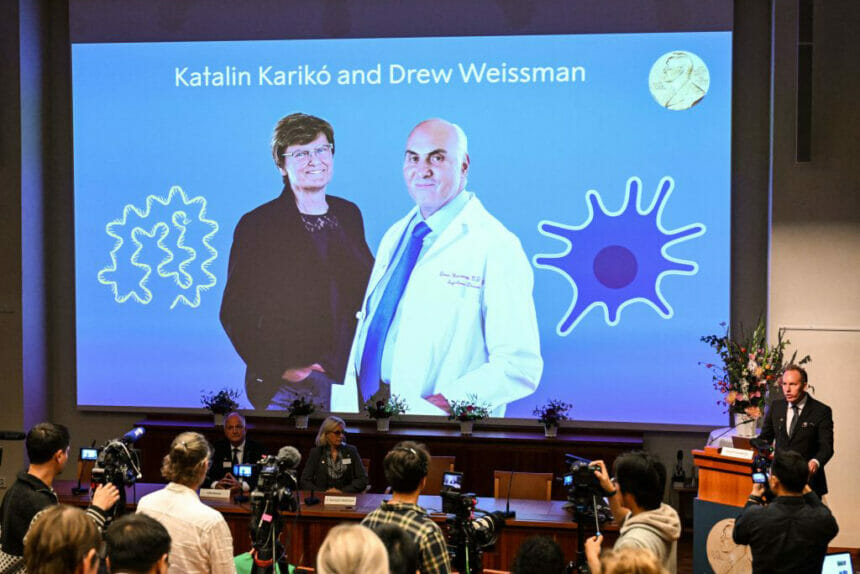Researchers Katalin Karikó and Drew Weissman were awarded with the Nobel Prize in Physiology or Medicine 2023 for their pioneering work in the field of mRNA technology Monday morning.
Karikó and Weissman, who work at the University of Pennsylvania, have been at the forefront of research that led to the development and modification of mRNA-based therapies that enabled effective COVID-19 vaccines.
While there had been extensive research into mRNA for years, Karikó and Weissman explored the ability of dendritic cells to recognize in vitro transcribed mRNA as a foreign substance, which allows for the activation and release of signaling molecules.
The two produced different variants of mRNA to see if the absence of altered bases in the in vitro transcribed RNA could explain an unwanted inflammatory response.
Through their research, they found that the inflammatory response was “almost abolished” when base modifications were included in the mRNA, marking a significant development in how this science was understood as a therapy.
Notably, the results were published in 2005, well before the COVID-19 pandemic began in early 2020.
The Nobel Assembly at Karolinksa Institutet said the work of both honorees was a critical research breakthrough that supported billions of vaccines and saved millions of lives during the more than three-year-long pandemic.
“Through their groundbreaking findings, which have fundamentally changed our understanding of how mRNA interacts with our immune system, the laureates contributed to the unprecedented rate of vaccine development during one of the greatest threats to human health in modern times,” the Nobel Assembly stated.
BioNTech issued a press release Monday morning commending Karikó and Weissman on their award and contributions to the mRNA space. The company acknowledged how the technology has supported its COVID-19 vaccine, which was jointly developed with Pfizer and was first approved by global health regulators on an emergency use basis in December 2020.
“We value both for their passion, persistence and commitment. This Nobel Prize is a reminder for scientists around the world to continue to develop and unlock the full potential of new drug classes,” the company stated.
University of Pennsylvania president Liz Magill also issued a statement following the announcement, saying the institution was “enormously proud” of their achievements and the recognition from the Nobel Assembly.
This is the latest honor Karikó and Weissman have received, including yet another distinction associated with their research that helped stem the effects of the pandemic. In 2021, the pair were named among TIME’s Heroes of the Year.







